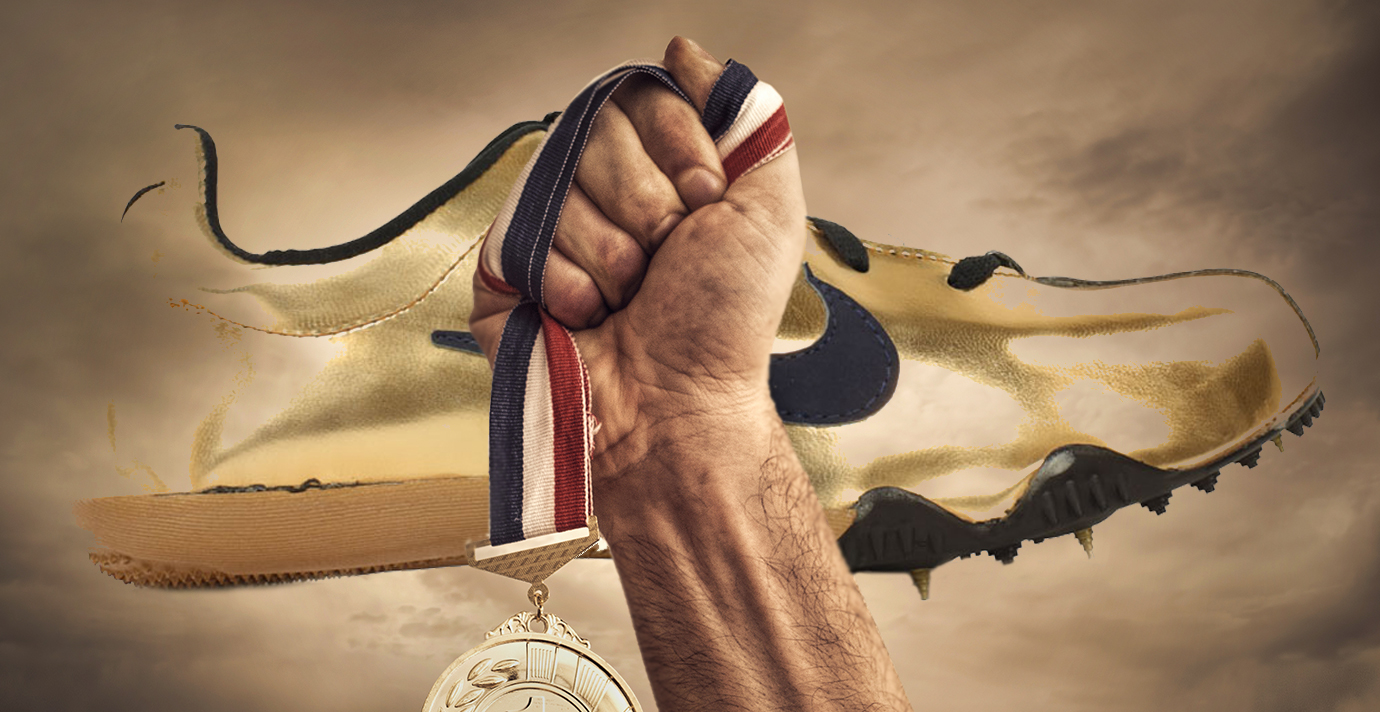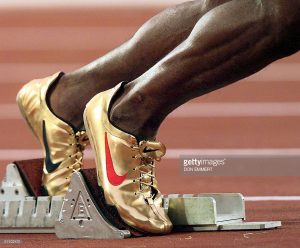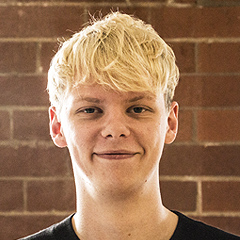How Nike Closed the Door to Non-Official Olympic Sponsors.
 marketing
marketing
The Olympics might seem like a golden opportunity for social media professionals or anyone working in the digital marketing industry for a spot of trend-jacking, but thanks to the tight rules surrounding Regulation 40 (The Olympic committees sponsorship guidelines) its a difficult and potentially risky thing to do. How did all this come about?
It all started with the 1996 Atlanta Olympics, a pair of golden running shoes and the “ambush” marketing undertaken by Nike.
Rather than pay the measly $50 million dollars reportedly paid by other official sponsors like rival Reebok, Nike chose to give top of the range equipment to pro-athletes and open”Nike Centres” tactically placed next to the Olympic Village.
 This pair of $30,000 pair of golden running shoes were given to four time Olympic gold medal winning sprinter Michael Johnson and would feature with him on the front cover of Time Magazine. Not bad coverage for a gift from a non-official sponsor.
This pair of $30,000 pair of golden running shoes were given to four time Olympic gold medal winning sprinter Michael Johnson and would feature with him on the front cover of Time Magazine. Not bad coverage for a gift from a non-official sponsor.
This, coupled with some overly aggressive marketing campaigns during the games obviously didn’t sit well Olympic Officials or with official sponsors who had paid out tens of millions of dollars for the right to be associated with the event.
With the explosion of media coverage, it’s of little surprise that the investment (and consequent need to protect investment) in sponsorship has increased.
Since the 1996 games the rules for what non-sponsors and individual athletes can say about the games have been sharply defined.
Under the IOC’s (International Olympic Committee) Regulation 40, official sponsors have essentially had a monopoly on advertising for the games. Athletes have been barred from speaking about other brands, regardless of the hand they have had in their individual success.
Similarly, brands who sponsor sporting stars have been forbidden from featuring athletes in their campaigns during the duration of the games.
However, in an interesting development, the 2016 games have seen a slight relaxation of the Regulation 40 rules that marketers should be mindful of.
Athletes are now allowed to appear in campaigns for non-official brands so long as they do not specifically mention the Olympic Games themselves or use any of the IOC’s intellectual property including;
- Terms such as “Olympics”, “Olympic Games”, “Rio 2016”.
- Official Olympic and Paralympic branding, including logos, symbols, and expressions.
- The famous multi-coloured Olympic rings.
- The Olympic and Paralympic medals, flame symbolism, mascots and more.
- Naming participant athletes, their support teams and even officials.
- Archive images of historical games.
The official guidelines have extensive restrictions, but are not all-encompassing, meaning opportunities do remain available.
Even with this shift, breaches are aggressively challenged by official brands, the IOC and national committees. The biggest battleground? Social media.
The list of do’s and don’t for social media is extensive - especially when it comes to platforms like Twitter.
Summarising their restriction for social media the USOC (United States Olympic Committee) warned businesses; “Do not create social media posts that are Olympic themed, that feature Olympic trademarks, that contain Games imagery or congratulate Olympic performance”.
So. Clearly the relaxation of the rules does not mean it is all plain sailing. There are still a number of steps that athletes and brands have to go through to make the most of this opportunity.
US athletes and brands had to submit their marketing, social media and advertising plans to the USOC in January, a full seven months prior to the start of the games with campaigns having to be out in the market by March 2016, giving very little benefit to businesses hoping to gain from any Olympic buzz in a reactive or spontaneous way.
While this has opened the door a little to non-official brands and businesses who hope to talk about their involvement with athletes in the 2016 games, they still seem harsh to many - with small brands and global giants both feeling the pinch of restrictions.
For the current games and beyond, the big businesses who have cash to buy themselves coveted official sponsor status will continue to be protected and promoted.

